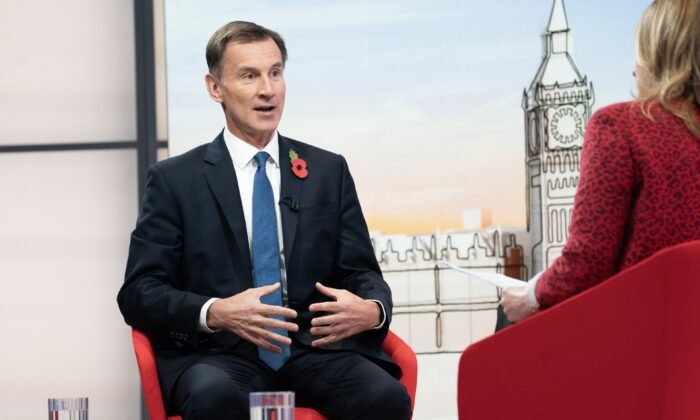Government borrowing increases in anticipation of Autumn Statement announcements
Economists are indicating that the Chancellor is “under greater pressure than ever to come up with something” to gain popularity points through tax cut announcements.
Official data revealed that government borrowing had increased to £14.9 billion, marking the second-highest October borrowing since monthly records started in 1993.
This amount is £4.4 billion more than was borrowed in the same month the previous year, according to the Office of National Statistics (ONS).
The figure was £1.2 billion higher when compared to the forecast by the Office for Budget Responsibility (OBR) for October, representing the first time it has overshot the official forecast this financial year.
Public sector net borrowing for the first six months of the financial year stood at £83.4 billion, in contrast to the previously estimated £81.7 billion published in September. This difference can be attributed to reduced tax and national insurance contributions, as well as weaker income taxes.
Government debt reached £2,643.7 billion or 97.8 percent of GDP, which is 2.3 percent higher than a year ago, maintaining levels last seen in the early 1960s.
Even though the numbers for October were higher than predicted, the ONS reported that borrowing over the financial year-to-date was £98.3 billion, £16.9 billion less than the £115.2 billion forecast made by the OBR in March.
The OBR is anticipated to adjust its total borrowing forecast by a figure between £13 billion to £16 billion following the Autumn Statement to be delivered on Wednesday.
Wiggle Room
Even though Downing Street will be pleased that borrowing over the financial year-to-date was lower than the OBR forecast, it will still face constraints in how much it can offer in terms of tax cuts.
The IFS cited weak growth and inflationary risks as major obstacles to making decisions about tax cuts.
Inflation decreased to 4.7 percent in the year to October, down from 6.3 percent in September.
The government is aiming to “reward work, by cutting taxes and reforming the benefits system so work always pays,” pledged Mr. Sunak.
“We still have a long way to go. Interest rates will have to stay high enough for long enough to make sure we get all the way back to the 2 percent target,” said Andrew Bailey.
As the chancellor finalizes Wednesday’s Autumn Statement, he will have to carefully weigh the economic and political costs of tax cuts.
While tax announcements could win votes for the Tories, they may not be economically beneficial considering the increasing national debt and high-interest rates.






